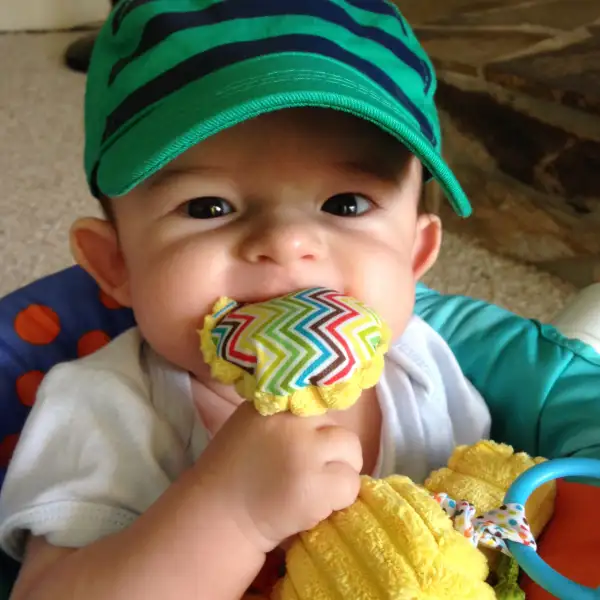What Adam Smith Taught Me About Child Care

It’s 1 p.m. on Sunday, and a thick fog of panic begins to set in. Luke has just woken from his mid-morning nap and will need to go back down for a light snooze in three hours. If we miss that window, he’ll become too tired by bedtime and will holler for an extra hour before finally going to sleep for the night; and by the time he does, Mrs. Tepper and I will be hollowed-out shells of our normal selves.
But this afternoon is not an unscheduled pocket of time to be frittered away perambulating around Prospect Park. We have work to do.
Our mission is to retrieve a second-hand high chair (which combines a feeding seat with “a sophisticated pneumatic lift system” according to the ad), stop by the hardware store for air conditioning accessories, and buy groceries for dinner.
That’s just half the battle. Before we even get into our car, we must pack Luke’s diaper bag, collect a few of his favorite teethers and jam his apocalypse-proof $800 stroller into our trunk. This is all while entertaining the tyke so that he doesn’t cry, and detaining our dachshund behind the kitchen gate (which is intended for toddlers, oddly enough). Remember, we are just two normal humans with only four arms.
Here’s the really amazing bit: We got it accomplished. Like, all of it. Luke even passed out right after the clock struck 4 p.m. How? Well, it had a lot to do with Adam Smith.
In his masterpiece The Wealth of Nations, the economist discusses the benefits of division of labor with the example of a pin factory. Instead of each employee making a pin all by himself, each worker does one specific task, and in doing so the factory becomes much more productive.
“One man draws out the wire, another straightens it, a third cuts it, a fourth cuts it, a fifth grinds it at the top for receiving the head…”
Smith goes on to say that this system is efficient even for smaller factories with only 10 employees.
“Each person, therefore, making a tenth part of 48,000 pins, might be considered as making 4,800 pins in a day. But if they had all wrought separately and independently…they certainly could not each of them have made 20, perhaps not one pin in a day...”
Now, raising a child is not like making a pin. (For one thing, you don’t have to change a pin’s dirty diaper.) But splitting up chores, errands and responsibilities is a major reason why we still resemble functioning adults.
This wasn’t always the case. When Luke was first born, Mrs. Tepper naturally took charge. While I was absolutely terrified that one false start on my part would forever limit his boundless potentiality, Luke's mother stepped up to the plate. She could pack his travel back while holding him in one arm faster than I could unfold his stroller.
She put him down for his nap, picked him up when he awoke and fed him. Even with the bottle, she was simply better at it than me. She was the superstar, and I was the benchwarmer.
Now, five months on, we're more of a team. I developed my own rhythm with Luke, and now Mrs. Tepper isn't the only one who can feed, bathe and clothe him.
Before we left that Sunday morning, Mrs. Tepper and I passed Luke between each other like a basketball. She pirouetted, diaper bag in hand, and I slid Luke gracefully into his stroller with three toys dropped onto his lap. It was an efficient, domestic dance that set the tone for a stress-free afternoon of chores.
Thank you, Adam Smith.
__________
Taylor Tepper is a reporter at Money. His column on being a new dad, a millennial, and (pretty) broke appears weekly.
More First-Time Dad:
Why a Maid is a Better Investment than a Divorce Lawyer
Why You Should Get Up From Your Desk and Go Home
Baby Clothes are Cheaper than Therapy
Why I’ll Send my Infant Son to College Before I Buy a House
Why Does my Baby Need Two of Everything?
